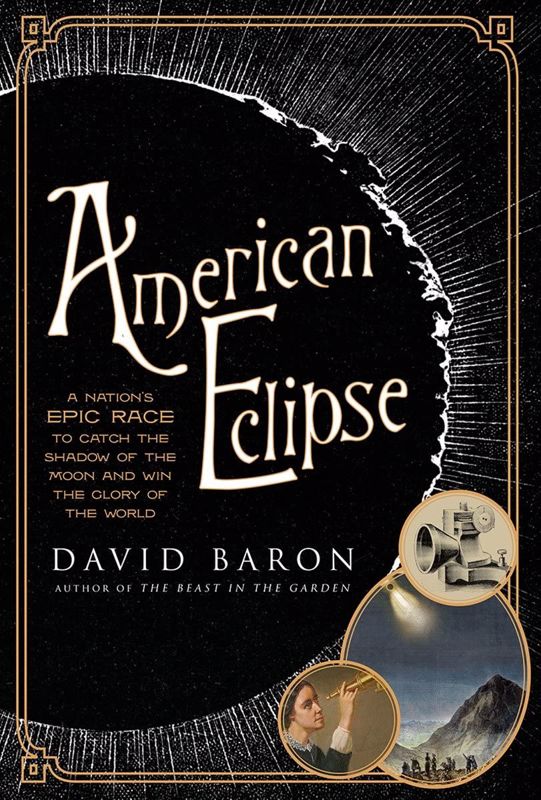A Total Eclipse of the Sun
America was a nation of tinkerers, the international scientific community contemptuously believed in the 1870s. Yes, those Yankees could produce clever gadgets, but where were the true scientific advances? A rare total solar eclipse in 1878 that passed over America’s western states would offer three American scientists an unparalleled opportunity to advance their personal reputations as well as rehabilitate the nation’s scientific reputation. In his captivating history American Eclipse, David Baron recounts the story of a very American eclipse and its impact on the future of American science.
 The total solar eclipse would be the proving ground for three very different scientists. There was James Craig Watson, an astronomer at the University of Michigan whose ego was as wide as his girth. A talented hunter of minor planets, or asteroids, he obsessively wanted the glory of confirming that there was a planet inside the orbit of Mercury, something he could look for during the eclipse. There was also Maria Mitchell, a professor of astronomy of Vassar and famous for discovering a new comet. The professional astronomer may have been shy, but she was a steadfast proponent of women in the sciences and her presence at the eclipse might promote social change. Finally there was the celebrated inventor of the phonograph and a master self-promoter, Thomas Edison. Edison wanted to be seen as a true scientist worthy of respect and not just a mere inventor. He would take his newly-invented tasimeter, an instrument that measured the heat of the stars, to the eclipse and prove its scientific validity.
The total solar eclipse would be the proving ground for three very different scientists. There was James Craig Watson, an astronomer at the University of Michigan whose ego was as wide as his girth. A talented hunter of minor planets, or asteroids, he obsessively wanted the glory of confirming that there was a planet inside the orbit of Mercury, something he could look for during the eclipse. There was also Maria Mitchell, a professor of astronomy of Vassar and famous for discovering a new comet. The professional astronomer may have been shy, but she was a steadfast proponent of women in the sciences and her presence at the eclipse might promote social change. Finally there was the celebrated inventor of the phonograph and a master self-promoter, Thomas Edison. Edison wanted to be seen as a true scientist worthy of respect and not just a mere inventor. He would take his newly-invented tasimeter, an instrument that measured the heat of the stars, to the eclipse and prove its scientific validity.
As the fateful day approached, the three scientists as well as astronomers, tourists and journalists made their way west. With all manner of telescopes and scientific instruments, they set up crude camps all over Colorado and Wyoming, from the very top of Pike’s Peak to a converted hen house, then turned their eyes to the sky. In a totality lasting less than three minutes fame and fortune might await: would Watson find his planet? Would Edison’s tasimeter succeed? Could Maria Mitchell transform societal views? The answers would lie in the shadow of the moon.
Experience the eclipse














